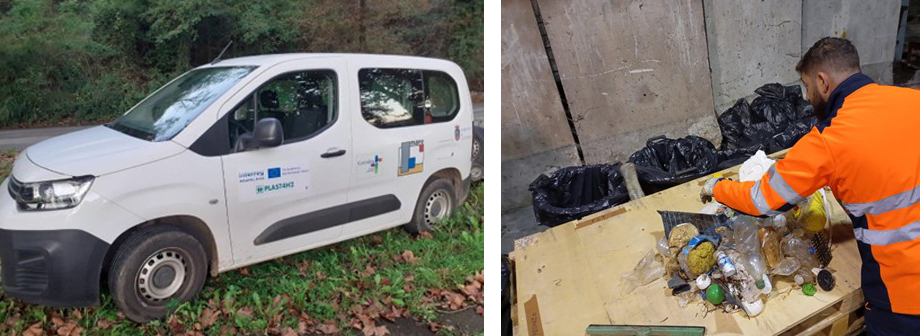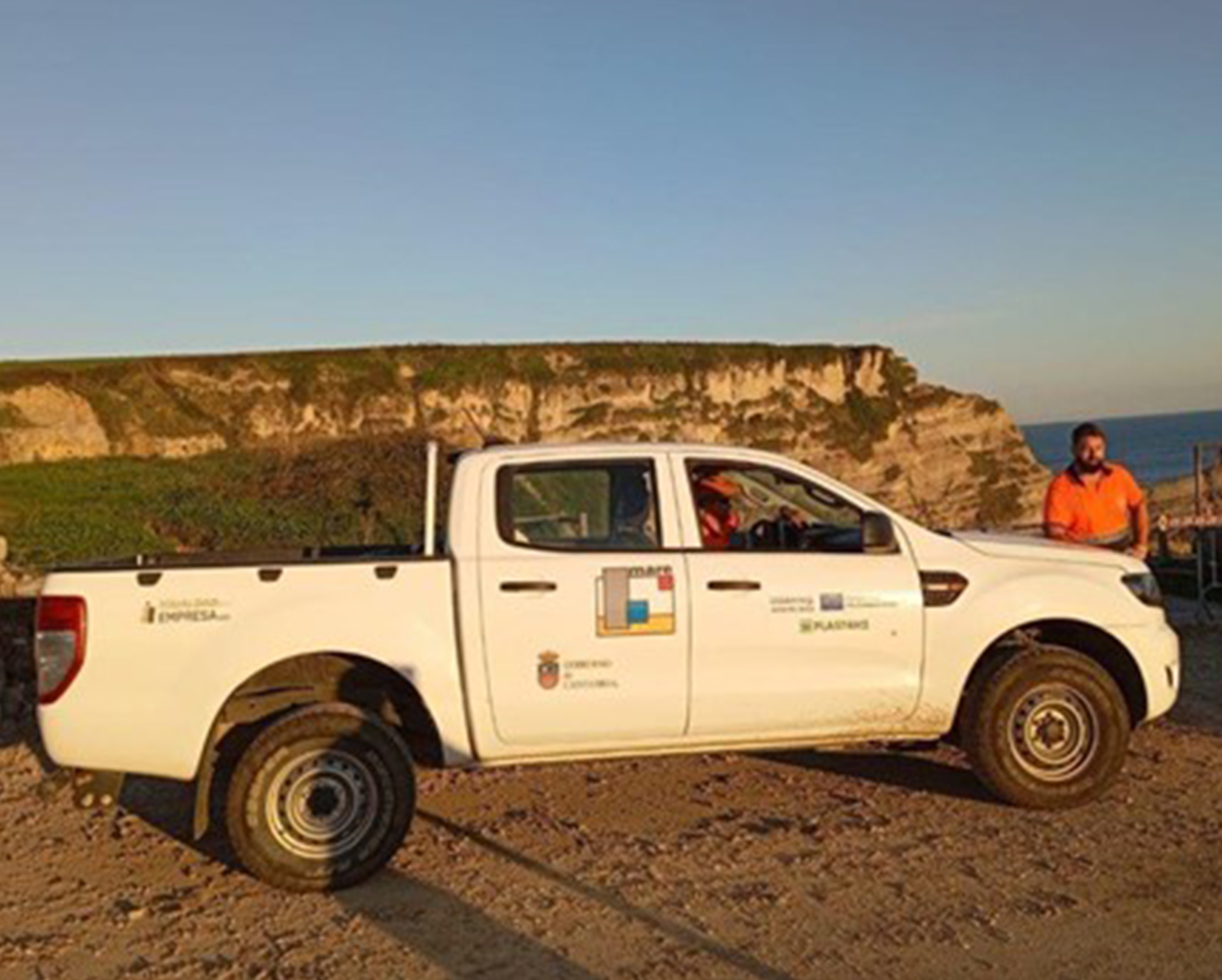Plastic pollution in marine ecosystems represents one of the greatest environmental challenges of our time. In this context, the PLAST4H2 project, led by the University of Cantabria and framed within the European Interreg Atlantic Area programme, is moving forward with the aim of tackling this problem from a comprehensive perspective, combining research and public awareness.
During the last quarter of 2024 and the first half of 2025, MARE has been carrying out detailed work focused on understanding the types of plastic materials that reach the Cantabrian coastline.
In the initial stage, a sampling plan was implemented across the three zones into which the Cantabrian coastline had previously been divided. Over the first six months, 208 sampling actions were conducted, resulting in the collection of 5,389,460 kg of waste. The characterization of this waste was carried out in 11 analysis sessions, providing valuable and detailed information about the types of marine debris arriving from the sea.
A preliminary analysis did not reveal any clear patterns or seasonal trends, showing that the variability in the composition of the plastic fraction follows a random distribution.
The compilation and analysis of all data obtained on the typology, quantity, and proportion of the collected waste—together with its comparison to the waste managed by MARE—will allow for a Life Cycle Assessment (LCA) of plastic waste, to be compared with other management alternatives such as the one proposed by PLAST4H2.
After completing these two initial phases focused on research and technical analysis, MARE’s involvement is now shifting towards environmental education and public awareness.
This stage aims to engage citizens and various social stakeholders in the fight against plastic pollution, promoting more sustainable habits and a greater understanding of the impact of plastic waste on marine ecosystems.
Through outreach campaigns and educational initiatives, the goal is to foster collective knowledge and commitment, paving the way towards a more circular and environmentally friendly management model.
Specifically, during the past summer, a communication and awareness campaign titled “You Decide, the Sea Feels It” was carried out targeting beachgoers across Cantabria. Soon, an educational programme for schools will also be launched through the creation of a digital educational platform based on gamification, called Aula Mare Azul (“Blue Sea Classroom”).
The PLAST4H2 project continues to make progress, seeking innovative solutions that support the transition towards a circular, environmentally sustainable management model, actively involving society in this process of change.


